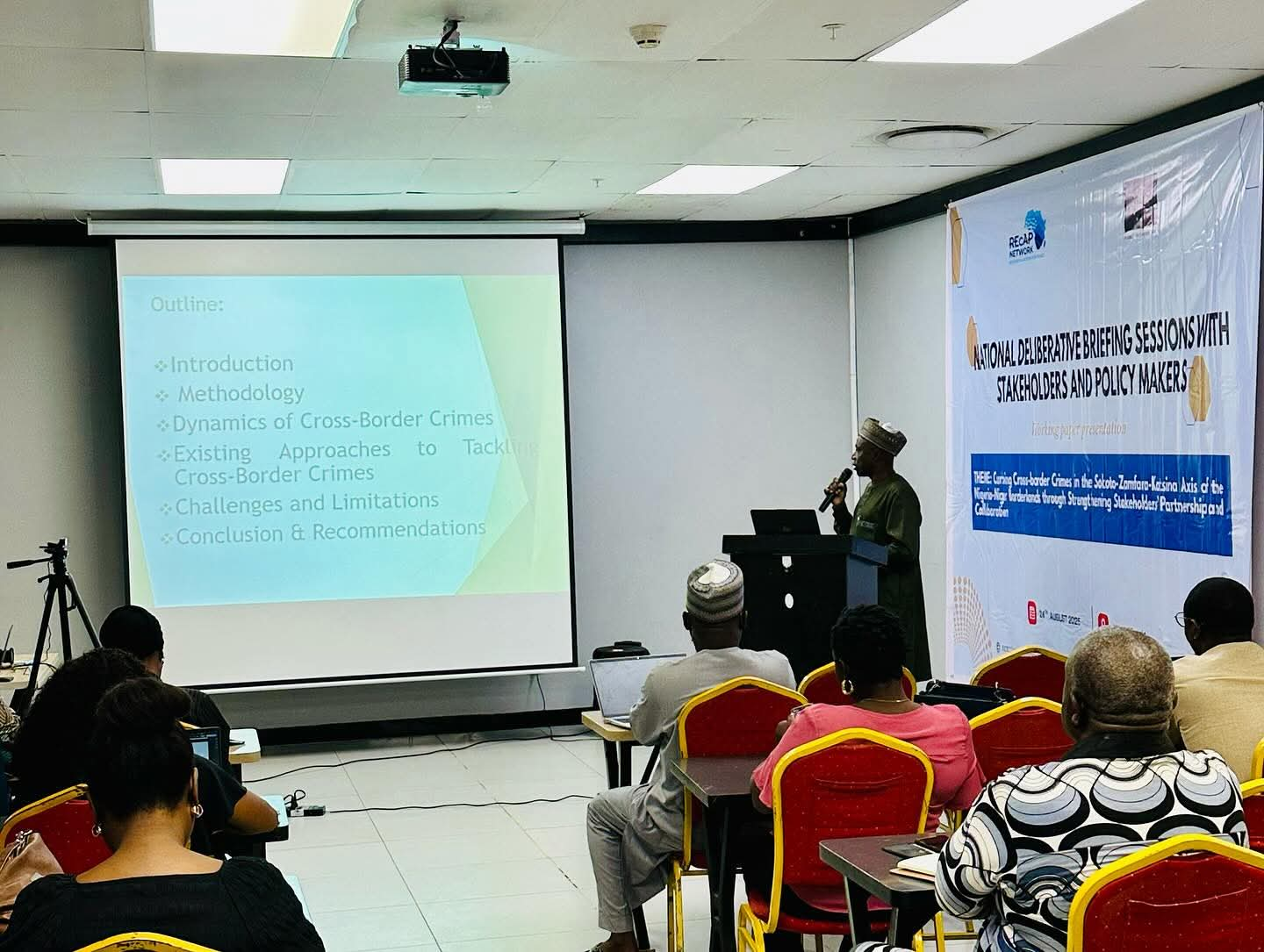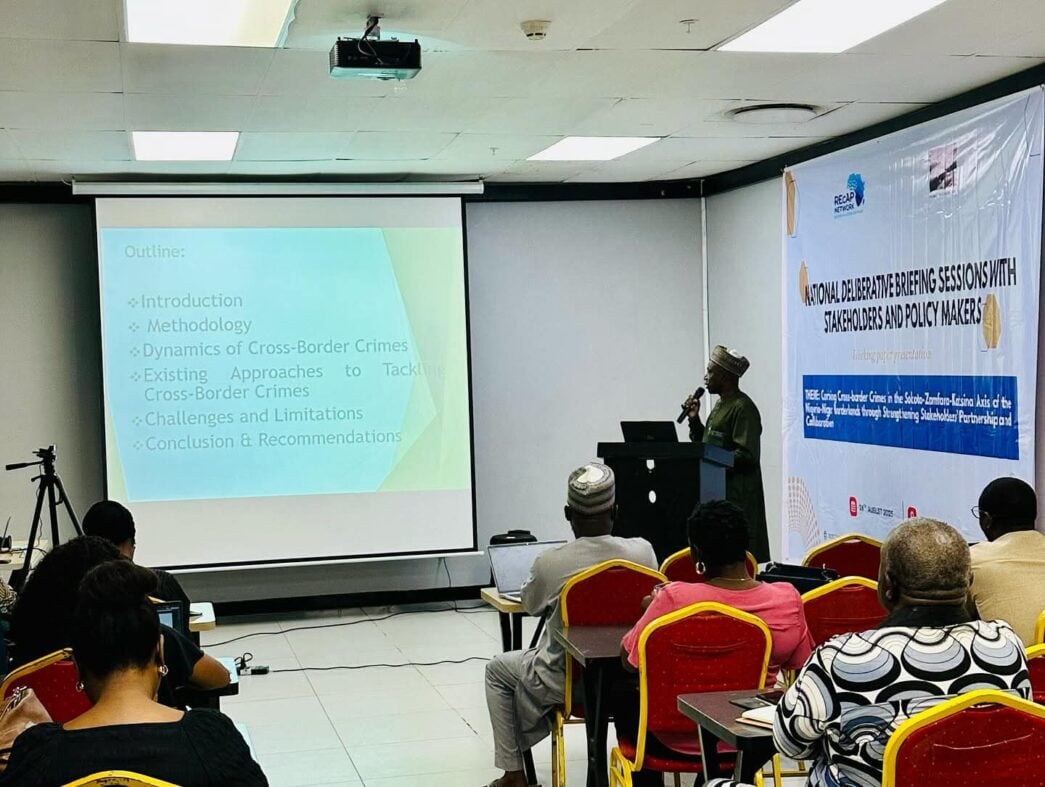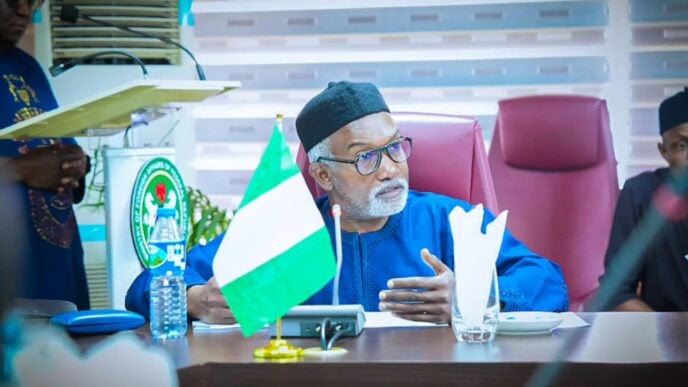Stakeholders deliberate on security
Security experts have implored the federal government to prioritise inter-agency collaboration and community partnerships to tackle rising cross-border crimes in the Sokoto–Zamfara–Katsina axis.
The call was made on Tuesday in Abuja at a national deliberative session organised by the West Africa Network for Peacebuilding (WANEP) and the Research and Action for Peace (REcAP) project, in partnership with the Danish Refugee Council (DRC) and the Stockholm International Peace Research Institute (SIPRI).
The event, organised with support from the European Union, was themed ‘Curbing Cross-Border Crimes in the Sokoto–Zamfara–Katsina Axis of the Nigeria–Niger Borderlands through Strengthened Stakeholders’ Partnership and Collaboration’.
Francis Onyekwue, national coordinator of the Trauma Awareness and Resilience Initiative, noted that the crisis stems from the colonial border demarcations that ignored ethnic and linguistic realities.
Advertisement
“The borders were drawn without regard for local communities. Hausa, for instance, is spoken on both sides of the Nigeria–Niger border, yet porous entry points have become routes for arms smuggling from the Sahel and the Libyan crisis,” Onyekwue said.
He urged the government to replace “symbolic border posts” with technology-driven surveillance and effective patrol systems.
Onyekwue also linked the worsening insecurity in the north to climate change, noting that shrinking grazing land is driving pastoralists into new territories and fuelling resource-based clashes.
Advertisement
“Countries like Libya and Burkina Faso are greening dry lands to reduce migration pressures. What stops Nigeria from doing the same in the north?” he asked.
Presenting a paper on cross-border crimes, Abubakar Suma’ila, a lecturer at Usman Danfodiyo University, said the Sokoto–Zamfara–Katsina corridor was historically a Sahelian trade hub before colonial partition disrupted local systems.
He said criminal activities have since evolved, with armed groups now targeting civilians more than government forces.
“The ethnicisation of this conflict is a dangerous myth. Evidence shows that criminal actors operate irrespective of ethnic lines,” Suma’ila said.
Advertisement
Suma’ila called for coordinated intelligence-sharing, robust community engagement, and multi-stakeholder collaboration.
Kumah L.J., assistant comptroller of customs, harped on trust-building with border communities for intelligence gathering.
“Cross-border insecurity is a national issue and cannot be solved overnight. Security personnel must work closely with locals, and agencies must collaborate to share intelligence for effective operations,” he added.
Advertisement













